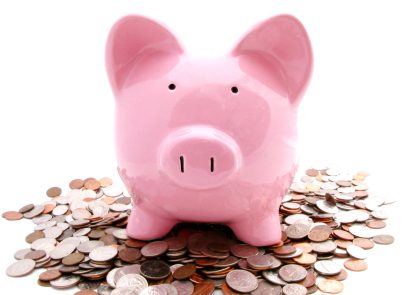Remember the old joke about a simplified tax form that said: 1) How much did you make last year? 2) How much do you have left? 3) Send it in. Lately I've been wondering if there isn't some merit to it.
Not, obviously, because I favour government taking all your money. But in two important ways.
First, the joke stings because it's far too close to reality. Government at all levels now takes something over 40% of GDP counting narrowly (if you also include tax expenditures and regulations that deliberately distort key industries like finance, a series of Macdonald-Laurier Institute papers has argued, it's closer to 60%). Once you pay that much tax on top of buying food, clothing, shelter and the essentials of a decent life, it's no wonder Canadians have little left over for savings and, like their governments, are deeply in debt.
Second, the joke might actually be the basis for a simplified tax form and system that would work without taking almost everything. Suppose we got rid of almost all existing taxes, and the complex system of exemptions, loopholes and boutique tax credits that contaminates the current income tax system, and instead had a tax form that read "How much did you make last year?" "Subtract a basic allowance" and "Send this share of the rest". And that would be all the tax you'd pay.
In principle it sounds pretty good, right? Including no incomprehensible multi-page tax form. The question, however, is what the basic allowance and tax rate would be.
Suppose for the sake of argument it said: "How much did you make last year?" "Subtract $30,000" and "Send half of the rest".
"Half?" you gasp. But it gets worse. According to one Statistics Canada study, the average income of the bottom one-fifth of income earners in 2012 was $13,600 and of the second fifth $34,600. So if we set the basic allowance at $30,000 most of that 40% would pay nothing and the remaining 60% or so would have to pay everything. But since the bottom 40% earn, in total, just under 15% of total income in Canada, you'd be raising the 40% of GDP governments need from nearly 90% of Canadians' income.
On that basis you'd get to send just under half. But wait, because everyone gets the first $30,000 tax free, which turns out to exempt roughly 22% more of total income. So you're left raising all your money from about two-thirds of all income earned in Canada. And to get 40% of GDP out of 66% of income, you're looking at a flat tax of nearly 60% on all income earned in Canada above a $30,000 basic allowance.
Pretty scary, huh? We know marginal rates that high have a very discouraging effect on enterprise, though at least my proposed system would leave little room for legal tax avoidance. But sometimes fear is good.
It alerts you to dangers like being overgoverned. One major drawback of our existing tax system is that we are being nibbled to death by ducks, paying HST here, property tax there, gasoline tax at the pump, "delivery charges" on our electricity and so forth. What might Canadians say if the whole thing came in one big bite? And what might they say if they realized that a truly "progressive" tax system is incompatible with government as big as our own because you can't just tax "the rich" when governments are so voracious?
Andrew Coyne recently observed in the National Post that the infamous "one percent" in Canada, namely people earning over $250,000, currently get about 10% of all income but pay about 21% of federal income tax. Moreover, and to me more surprising, the top eight percent of earners pay more than half of all federal income tax. We are definitely taxing "the rich" heavily and 91% of us pay less than half of income tax. But most of us pay a lot one way or another because governments need far more money than even a confiscatory income tax regime can raise.
In that sense my proposal is obviously impractical. But I did not put it forward only to smash it and see what sense we could make of the fragments. I want people thinking about why our system has to be so complicated as well as so large.
I recently heard a suggestion that Canadian provinces could eliminate their income taxes entirely if they were willing to impose fairly hefty sales taxes, probably somewhere just shy of 15%. I don't by many economists' argument that sales taxes are better than income taxes because they reward saving. I don't think it's the government's business whether you save or spend. I think the purpose of taxes is to raise the money necessary to pay for programs, not induce free adult citizens to give to charity, go to the gym or buy bonds. But a sales tax, unless deliberately made nightmarishly complex, raises money cleanly, avoids the nightmare of the current income tax form and, again, shows just how big the bill is for government. And those are all good things.
A far simpler income tax system would have the same virtues. To produce anything like what I originally suggested the basic exemption would have to be rather lower than $30,000, and the "flat" rate structure would have to have several tiers, ranging from perhaps 20% on the first slice of income to maybe 40% at the top. But such a system would nevertheless be far less economically distorting, far simpler to comply with, and much clearer about how much we pay in total than the existing one.
So there's life in that old joke after all. Even if you're still not laughing.









